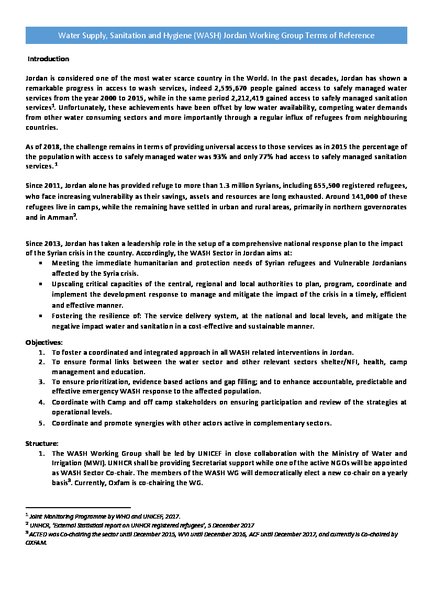
Jordan is considered one of the most water scarce country in the World. In the past decades, Jordan has shown a remarkable progress in access to wash services, indeed 2,595,670 people gained access to safely managed water services from the year 2000 to 2015, while in the same period 2,212,419 gained access to safely managed sanitation services1 . Unfortunately, these achievements have been offset by low water availability, competing water demands from other water consuming sectors and more importantly through a regular influx of refugees from neighbouring countries.
As of 2018, the challenge remains in terms of providing universal access to those services as in 2015 the percentage of the population with access to safely managed water was 93% and only 77% had access to safely managed sanitation services. 1 Since 2011, Jordan alone has provided refuge to more than 1.3 million Syrians, including 655,500 registered refugees, who face increasing vulnerability as their savings, assets and resources are long exhausted. Around 141,000 of these refugees live in camps, while the remaining have settled in urban and rural areas, primarily in northern governorates and in Amman.
Since 2013, Jordan has taken a leadership role in the setup of a comprehensive national response plan to the impact of the Syrian crisis in the country. Accordingly, the WASH Sector in Jordan aims at:
- Meeting the immediate humanitarian and protection needs of Syrian refugees and Vulnerable Jordanians affected by the Syria crisis.
- Upscaling critical capacities of the central, regional and local authorities to plan, program, coordinate and implement the development response to manage and mitigate the impact of the crisis in a timely, efficient and effective manner.
- Fostering the resilience of: The service delivery system, at the national and local levels, and mitigate the negative impact water and sanitation in a cost-effective and sustainable manner.